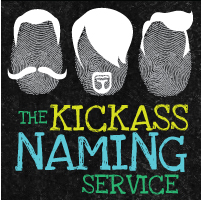Hey there! The first part of this teeny weeny series is hyah. You should totally read it first.
Should I put the spiral picture in again, I wonder. Yeah, why not, it’s still pretty.

So last time we were introduced to the Foundations Stage and the Action Plan stage. Thus, it’s time for…
The Implement/Experiment/Implement/Experiment Stage
This is by far the biggest stage – it’s the one where the plan is made, and it’s time to Do The Work. You’re running your business, constantly adding and removing and tweaking your offerings, putting them out there, and then adding/removing/tweaking again. It’s never a static process, but the changes are more controlled.
What this stage is marked by:
- Constant small changes
- Building, improving, refining
- Rhythms of work
- Routines, processes and systems
Challenges to manage while you’re going through this stage:
- Falling into a rut
- Sustainable profitability
- Self-sabotage
- Misplacing the mojo
- Inertia and mediocrity
- Adapting to change
Opportunities to exploit while you’re in this stage:
- Building resources
- Legacy
- Creating a reputation
- Living fully
- Going deep into your subject
- Going wide across subjects
- Generosity
Resources to help you through this stage
I’m collecting resources to help you create and maintain a thriving, soul-nourishing, squoodles-of-cash-and-joy business. There are lots and lots and lots of them.
The ARGH!!! Stage
Eventually, no matter how you polish and refine, your business (and you) has the weary, stale, flat, and unprofitable blues. I’m using “unprofitable” because I like quoting Hamlet out of context, although your business may be doing quite well, financially.
But it doesn’t matter.
It’s busted. The clients are wrong, or the business model doesn’t support you, or you’re not doing anything meaningful, or you’re bored with the work… whatever it is, you’ve reached the point where there is a problem that is not solveable in the business as it currently exists.
You aren’t (necessarily) mad as hell, but you definitely aren’t going to take this any more.
What this stage is marked by:
- Sleepless nights
- Dissatisfaction and irritability
- Going through the motions
- Envy and avoidance
Challenges to manage while you’re going through this stage:
- Accepting that this business no longer works (in its current configuration)
- The temptation to chuck it all in
- Denial and desperation
- Keeping commitments
Opportunities to exploit while you’re in this stage:
- Personal growth
- Insights on how to do it better next time
Resources to help you through this stage
I’m on the lookout for these, because this long dark tea-time of the soul is terribly uncomfortable and extremely volatile. (Especially considering the temptation to burn the bridges, not just behind you but in front of you and even in another country.) As soon as I find some, they shall be found here.
The Foundations Stage (again)
This is a spiral, remember? It’s time to (re)build your foundations in the new iteration of your business. This can be remarkably similar (changing only the Who, What or How*), or a complete reinvention, but otherwise it’s sorta the same as last time.
Except, of course, you’re a different, more experienced, and more awesome person since the last time you were at this stage. You know more, you have more resources, and you’ve had experience in what works and what doesn’t. It’s the spiral, one level up.
All the challenges and opportunities are the same as last time, just on a higher level. It’s handy that you’re one level higher, too.
(Lucky, that.)
By the bye: One seat in the 12 available for The Pilot Light has been filled. Don’t wait until the new year to tell me you’re interested, ‘cos you might miss out. And this is going to be AWESOMETACULAR.
*Riddle me this: Why did I not include the Why in the list of things that change? And when would I be wrong to do so? Answer in the comments!







